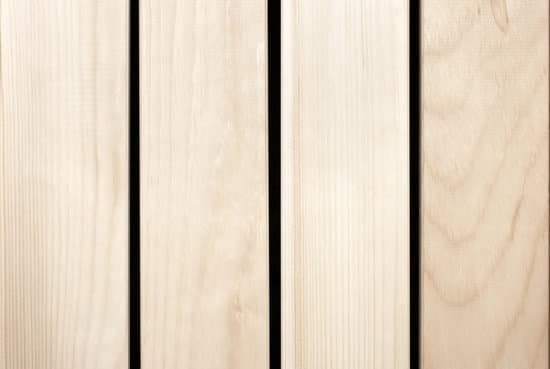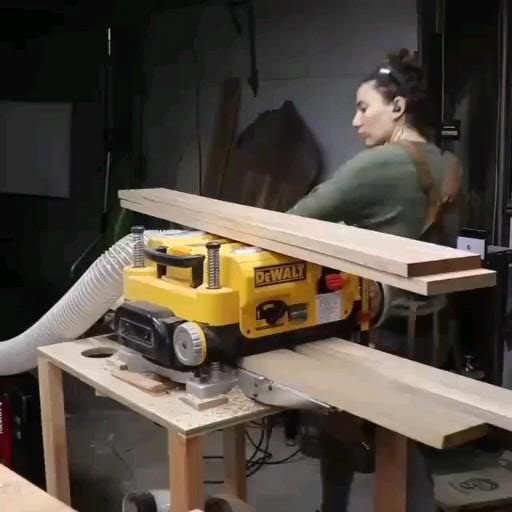Woodworking is a timeless craft that has been around for centuries, producing some of the most beautiful and functional pieces of furniture. One of the most sought-after items in woodworking is the custom-made table. From dining tables to coffee tables, a skilled woodworker can create a stunning centerpiece for any room.
But how much does a woodworker charge for a table? In this article, we will explore the factors that affect the cost of a custom table, the various types of tables and their price range, as well as materials and labor costs involved in table making.
When it comes to commissioning a custom table from a woodworker, there are several key factors that can influence the final cost. The size and type of table, the materials used, and the level of customization all play a role in determining the price. Understanding these factors can help you make an informed decision when choosing the right woodworker for your project.
In addition to these factors, it’s important to consider the skill and expertise of the woodworker themselves. A highly experienced craftsman may command higher prices for their work, but their attention to detail and quality craftsmanship can be well worth the investment. As we delve into this topic further, we will also provide tips for negotiating with woodworkers and understanding their quotes before embarking on your custom table project.
Factors Affecting the Cost of a Custom Table
When you commission a custom table from a woodworker, the cost can vary depending on several factors. The size of the table, the type of wood used, and the level of customization all play a role in determining how much you’ll pay for your one-of-a-kind piece.
One of the main factors that affect the cost of a custom table is the type of wood used. Different types of wood come with different price tags, so if you have your heart set on a table made from rare or exotic wood, be prepared to pay a premium.
In addition to the type of wood, the size and shape of the table will also impact its cost. Larger tables require more materials and labor to construct, so they will generally be more expensive than smaller ones.
Another factor that affects the cost of a custom table is the level of customization you desire. If you want intricate carvings, inlays, or other decorative elements added to your table, this will increase its price. However, if you’re looking to keep costs down, opting for a simpler design will help you stay within budget.
In addition to these factors, labor costs also play a significant role in determining how much a woodworker charges for a table. Skilled craftsmanship and attention to detail are essential in creating a high-quality custom table, so skilled labor isn’t cheap. This is why it’s important to consider not just the materials when budgeting for your custom table project.
| Factors Affecting Cost | Impact |
|---|---|
| Type of Wood | Different woods come with different price tags |
| Size and Shape | Larger tables are generally more expensive than smaller ones |
| Level of Customization | Intricate designs will increase the price |
| Labor Costs | Skilled craftsmanship comes at a premium price |
Types of Tables and Their Price Range
When considering commissioning a custom table from a woodworker, it is important to understand the different types of tables available and their corresponding price ranges. The type of table you choose will greatly impact the final cost, as certain styles and designs require more materials, labor, and expertise than others.
One of the most popular types of custom tables is the dining table. Dining tables come in a variety of sizes and shapes, from small round tables suitable for intimate meals to large rectangular tables capable of seating a dozen or more guests.
The price range for dining tables varies widely depending on factors such as size, material, and design intricacy. A simple farmhouse-style dining table may be on the lower end of the price spectrum, while a large hardwood trestle table with intricate carvings or inlays will be on the higher end.
Another sought-after type of custom table is the coffee table. Coffee tables are typically smaller than dining tables but can still vary significantly in price depending on factors such as material selection, design complexity, and added features like storage compartments or built-in lighting.
The final category to consider is specialty or accent tables, which includes pieces like console tables, end tables, and bedside tables. These smaller furnishings often feature unique designs or serve specific functions within a room. As with dining and coffee tables, the price range for specialty and accent tables will depend on their size, materials used, and level of customization required by the client.
Understanding the various types of custom tables available and their corresponding price ranges will help you make an informed decision when working with a woodworker to bring your vision to life.
Materials and Labor Costs in Table Making
Cost of Materials
The cost of materials plays a significant role in determining how much a woodworker will charge for a table. Different types of wood have varying prices, with hardwoods typically being more expensive than softwoods. Exotic woods can also drive up the cost of materials due to their rarity and unique characteristics. In addition to the wood itself, other materials such as stain, finish, and hardware also contribute to the overall cost.
Labor Costs
Labor costs are another factor that influences the pricing of custom tables. The amount of time and effort that goes into crafting a table can vary depending on its size, complexity, and the level of detail involved.
More intricate designs or specialized techniques may require additional labor hours, which will be reflected in the final price. Skilled craftsmanship is a crucial aspect of table making, so it’s important to consider the expertise and experience of the woodworker when evaluating labor costs.
Additional Costs
In addition to materials and labor, there are other expenses that woodworkers may need to account for in their pricing. These can include overhead costs such as workshop rent, tools and equipment maintenance, insurance, and any additional services provided (e.g. delivery or installation). It’s important to understand that these factors contribute to the overall value offered by a woodworker and should be considered when determining how much a woodworker charges for a table project.
Customization and Its Impact on Pricing
When it comes to customizing a table, the cost can vary significantly based on the specific requests of the customer. The level of customization desired by the client can have a significant impact on the final price of the table. Here are some factors that contribute to the customization of a table and their impact on pricing:
Factors Affecting Customization:
1. Table Size and Shape: Customers may desire a table in a non-traditional size or shape, which requires additional labor and materials, resulting in higher costs.
2. Wood Type and Finish: Different types of wood come with varying price points, and certain finishes may require more time and expertise, leading to increased costs.
3. Design Details: Intricate details such as carving, inlay work, or special patterns will add complexity to the project, affecting the overall price.
4. Additional Features: Specific requests for features like drawers, extensions, or unique hardware will contribute to higher costs.
Considering these factors, it is essential for customers to communicate their customization preferences clearly with their chosen woodworker. This will help provide an accurate quote that aligns with their vision for the custom table.
Keep these considerations in mind when discussing your custom table project with a woodworker:
– Clearly specify your customization requirements to ensure they are accurately reflected in the quote.
– Discuss any budget constraints upfront so that your woodworker can offer alternative solutions without compromising quality.
– Ask for sample work or references from previous customized projects to gauge the woodworker’s expertise in fulfilling specific design requests.
By understanding how customization impacts pricing, clients can work closely with their chosen woodworker to create a custom table that meets their exact specifications within an agreed-upon budget.
Average Prices for Standard Table Sizes and Styles
When it comes to commissioning a custom table from a woodworker, it’s important to understand the average prices for standard table sizes and styles. Depending on the size, style, and complexity of the design, the cost can vary significantly. Here are some general price ranges for different types of tables:
- Dining Tables: A standard rectangular dining table can range anywhere from $800 to $3000, depending on the size and type of wood used.
- Coffee Tables: Simple coffee tables can start at around $200 and go up to $1000 or more for more intricate designs with added features like drawers or shelves.
- End Tables: These smaller accent tables typically start at $150 and can go up to $500 depending on the materials and design.
- Console Tables: Ranging from $300 to $1500, console tables can vary greatly in price based on size and style.
The materials used also play a significant role in determining the cost of a custom table. High-quality hardwoods such as oak, cherry, or walnut will generally be more expensive than other types of wood. Additionally, the labor involved in crafting these pieces also contributes to the final price.
Ultimately, when considering how much a woodworker charges for a table, it’s essential to keep in mind that customization can impact pricing significantly. If you have specific requests for details such as inlay work, carvings, or unique finishes, these will increase the overall cost of your custom table project. It’s important to discuss these customization options with your woodworker so that they can provide an accurate quote for your vision.
How to Choose the Right Woodworker for Your Table Project
When it comes to choosing the right woodworker for your table project, there are a few key factors to consider that can ensure you get the best value for your money. The first step is to do some research and look for experienced woodworkers who have a proven track record of delivering high-quality custom tables.
You can ask for referrals from friends or family members who have had custom tables made, or you can search online for reviews and testimonials from previous clients.
Once you have a list of potential woodworkers, it’s important to reach out to them and discuss your project in detail. This will give you an opportunity to assess their communication skills, professionalism, and overall approach to customer service.
During these initial conversations, be sure to ask about their experience with similar projects, their process for creating custom tables, and their pricing structure. It’s important to get a clear understanding of how much does a woodworker charge for a table and what factors contribute to the overall cost.
Another important consideration when choosing a woodworker for your table project is the level of customization they offer. Some woodworkers may specialize in specific styles or types of tables, while others may be able to accommodate more unique design requests.
Be sure to discuss your vision for the table with each woodworker and gauge their willingness and ability to bring that vision to life. Ultimately, choosing the right woodworker involves finding someone who not only has the necessary skills and experience but also understands your specific needs and preferences.
| Key Considerations | Importance |
|---|---|
| Experience and Reputation | High |
| Pricing Structure and Factors Affecting Cost | High |
| Level of Customization Offered | Medium |
Tips for Negotiating and Understanding a Woodworker’s Quote
When it comes to commissioning a custom table from a woodworker, understanding how to negotiate and interpret the woodworker’s quote is crucial. Here are some valuable tips to help you navigate this process.
Understanding the Quote
Before you can negotiate with a woodworker, it’s important to understand what goes into their quote. A quote should include the cost of materials, labor, and any additional expenses such as finishing or delivery. Be sure to ask for a detailed breakdown of these costs so that you can better understand where your money is going.
Comparing Quotes
It’s always a good idea to obtain quotes from multiple woodworkers before making a decision. By comparing quotes, you can get a sense of the average market price for the type of table you want. Keep in mind that while price is important, it should not be the sole determining factor when choosing a woodworker. Consider factors such as experience, craftsmanship, and customer reviews as well.
Negotiating the Price
Once you have received quotes from different woodworkers, don’t be afraid to negotiate. If you feel that the initial quote is too high, politely discuss with the woodworker if there are areas where costs can be reduced without compromising on quality. However, it’s important to approach negotiations respectfully and understand that skilled craftsmanship comes at a cost.
By following these tips for negotiating and understanding a woodworker’s quote, you can ensure that you are getting the best value for your custom table project while also respecting the expertise and hard work of the woodworker. Remember that communication and transparency are key in ensuring a positive working relationship with your chosen craftsman.
Conclusion
In conclusion, the cost of a custom wood table varies greatly depending on several factors including the type of table, materials used, labor costs, and customization options. A basic standard table may cost less than an intricately designed and customized piece. The value of a custom wood table goes beyond its price tag as it reflects the craftsmanship, expertise, and artistry of the woodworker.
When considering how much does a woodworker charge for a table, it is important to remember that the cost is not just for the physical product but also for the skill and time invested in creating a one-of-a-kind piece. The true value of a custom wood table lies in its durability, uniqueness, and ability to serve as a centerpiece in your home or office for many years to come.
To ensure you are getting fair pricing for your custom wood table project, it’s important to choose the right woodworker who can deliver quality craftsmanship at a reasonable cost. By understanding the factors that affect pricing and effectively negotiating with the woodworker, you can make sure that you are getting a great value for your investment.
Ultimately, investing in a custom wood table is not just about buying furniture, but about supporting skilled artisans and owning a timeless piece of functional art.
Frequently Asked Questions
How Do You Charge a Woodworking Project?
When charging for a woodworking project, custom woodworkers typically take several factors into consideration. This includes the cost of materials, the time and labor involved in creating the piece, any specialized techniques or equipment required, as well as any additional expenses like finishing materials or hardware.
Some woodworkers may also factor in their level of experience and expertise when determining their pricing.
What Do Custom Woodworkers Make?
Custom woodworkers can make a wide range of items depending on their skills and the demands of their clients. This can include furniture pieces such as tables, chairs, cabinets, and bed frames, as well as decorative items like picture frames, wall art, and sculptures.
Some woodworkers may also specialize in creating custom built-ins for homes or businesses. Essentially, custom woodworkers can make just about anything out of wood that a client desires.
Is Selling Woodworking Profitable?
Selling woodworking projects can be profitable for those who are able to create high-quality, unique pieces that appeal to buyers. Custom woodworking often commands higher prices than mass-produced items due to the level of craftsmanship and customization involved.
However, achieving profitability may require careful cost management, effective marketing strategies, and an understanding of the target market for custom woodworking products. Additionally, establishing a strong brand and reputation for quality workmanship can help increase sales and profitability in the long run.

Hi everyone! I’m a woodworker and blogger, and this is my woodworking blog. In my blog, I share tips and tricks for woodworkers of all skill levels, as well as project ideas that you can try yourself.





